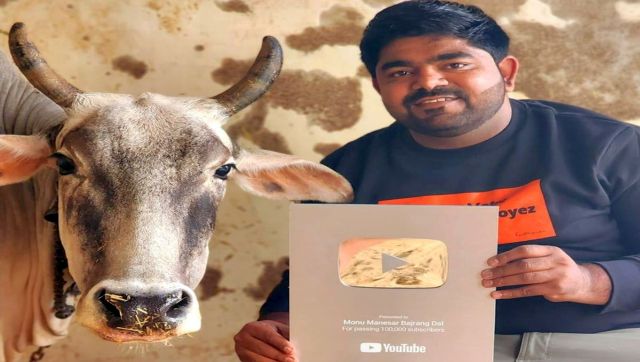The BJP government in Assam may find it hard to enforce the ban on sale of cattle for slaughter, given the age-old tradition of buffalo sacrifice followed at the venerable Kamakhya Hindu temple. The BJP has already found it hard to implement the ban due to legal hurdles, after a stay ordered by the Madras High Court. And in Kamakhya, it may run into culture and tradition as well.
“Animals and birds, including buffalo, have been sacrificed in the temple since ages,” said a source in the shrine, requesting anonymity.
He added that the devotees of the goddess bring along buffaloes, goats, pigeons and ducks to the temple, and have these sacrificed at the temple premises. “But these devotees purchase these birds and animals from a market outside. The new rule brought in by the Centre bans sale of cattle, including buffaloes, in an open market if it was meant for slaughter.
As per the amendments to the Prevention of Cruelty to Animals Act , “nobody can bring cattle to an animal market unless he or she has furnished a written declaration that the cattle will not be sold for the purpose of slaughter. Further, upon sale of cattle, the animal market committee will take an “undertaking” that the animals are for agricultural purposes and not for slaughter.”
If this new rule is to be followed in letter and spirit in Assam, nobody can buy buffaloes at the Kamakhya temple, a situation which might cost the BJP politically.
Though the Madras High Court has stayed the rule temporarily, fear looms large that it might take a hit on the age-old tradition of buffalo sacrifice at the Kamakhya temple. Kabindra Dev Sharma, a priest in the temple and a “Doloi”, who is a part of the temple’s administration for the Pujas, told Firstpost that religious institutions should be kept outside the ambit of such rules. “The government should focus on banning selling of meat in shops and not on sacrifices made at religious institutions,” he said.
He added that animal rights activists have tried to stop the practice in the past, but were not successful. It has even resulted in a change.org petition, but to no avail.
Even the Guwahati Municipal Corporation, that looks after the city’s cattle market, is unaware of the new rule. Mrigen Saraniya, GMC mayor, told Firstpost that he has yet not received any order to implement the new rule. “We will implement as soon as we receive an order to do so,” he said.
When asked how the GMC plans to monitor the sale of buffaloes meant for sacrifice, as the new rule does not permit sale of cattle for slaughter, he evaded the question. “If sacrifice of buffaloes at the Kamakhya temple is to be stopped by this new rule, ‘Qurbani’ of cows during Eid has also to be stopped. The law is equal for everyone.”
The Catch-22 situation for BJP in Assam is that even if it does implement the rule strictly, it is likely to refresh the debate regarding animal sacrifice in the Kamakhya temple, thereby pushing the party in an awkward situation. On the other hand, if it doesn’t implement the rule strictly, it would be caught defying the Centre.
When asked how the government will proceed with this new rule, state transport minister Chandra Mohan Patowary, who is otherwise known for being vocal, also shied away from providing a straight answer. “As of now I cannot answer this question. I will have to tell this to you later. Call me after three days; I will be out of station during this period,” he said.
But even before the new ban was drafted by the Centre, the rise of cattle vigilantism meant sale and supply of animals was already hit hard in the Northeast. Naeem Khan, who used to earn Rs 20,000 to Rs 30,000 by selling cows and buffaloes in markets in neighbouring Meghalaya state and would also supply buffaloes meant for sacrifice at the Kamakhya temple, told Firstpost that the cattle trade has almost stopped.
Referring to the rise of “gaurakshaks”, he said, “I have left the cattle trade, as there is no more ‘peace’ in this business.”
The trade is likely to dip further if more traders leave the business.


)




)
)
)
)
)
)
)
)